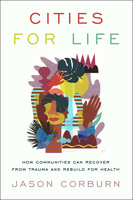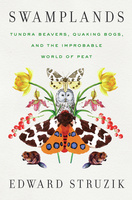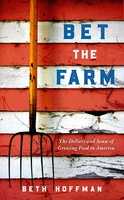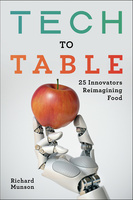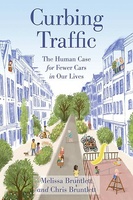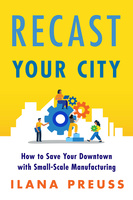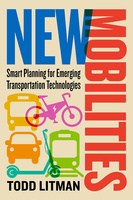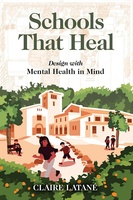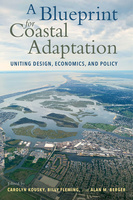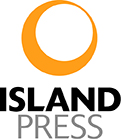
Island Press began with a simple idea: knowledge is power—the power to imagine a better future and find ways for getting us there. Founded in 1984, Island Press’ mission is to provide the best ideas and information to those seeking to understand and protect the environment and create solutions to its complex problems.
Cities for Life
How Communities Can Recover from Trauma and Rebuild for Health
In Cities for Life, public health expert Jason Corburn shares lessons from three of these cities: Richmond, California; Medellín, Colombia; and Nairobi, Kenya. Corburn draws from his work with citizens, activists, and decision-makers in these cities over a ten-year period, as individuals and communities worked to heal from trauma—including from gun violence, housing and food insecurity, poverty, and other harms. Cities for Life is about a new way forward with urban communities that rebuilds our social institutions, practices, and policies to be more focused on healing and health.
Autonorama
The Illusory Promise of High-Tech Driving
Norton takes the reader on an engaging ride—from the GM Futurama exhibit to “smart” highways and vehicles—to show how we are once again being sold car dependency in the guise of mobility.
Autonorama is hopeful, advocating for wise, proven, humane mobility that we can invest in now, without waiting for technology that is forever just out of reach.
Swamplands
Tundra Beavers, Quaking Bogs, and the Improbable World of Peat
In a world filled with breathtaking beauty, we have often overlooked the elusive magic of certain landscapes. A cloudy river flows into an Arctic wetland where sandhill cranes and muskoxen dwell. Further south, cypress branches hang low over dismal swamps. Places like these–collectively known as swamplands or peatlands–often go unnoticed for their ecological splendor. They are as globally significant as rainforests and have an important role to play in addressing climate change, yet, because of their reputation as wastelands, they are being systematically drained and degraded.
Swamplands celebrates these wild places, as journalist Edward Struzik highlights the unappreciated struggle to save peatlands by scientists, conservationists, and landowners around the world. An ode to peaty landscapes in all their offbeat glory, the book is also a demand for awareness of the myriad threats they face. It inspires us to see the beauty and importance in these least likely of places. Our planet’s survival might depend on it.
Bet the Farm
The Dollars and Sense of Growing Food in America
In her late 40s, Beth Hoffman decided to upend her comfortable life as a professor and journalist to move to her husband’s family ranch in Iowa—all for the dream of becoming a farmer. There was just one problem: money. Half of America's two million farms made less than $300 in 2019, and many struggle just to stay afloat.
Bet the Farm chronicles this struggle through Beth’s eyes. She must contend with her father-in-law, who is reluctant to hand over control of the land. Growing oats is good for the environment but ends up being very bad for the wallet. And finding somewhere, in the midst of COVID-19, to slaughter grass finished beef is a nightmare.
If Beth can’t make it, how can farmers who confront racism, lack access to land, or don’t have other jobs to fall back on hack it? Bet the Farm is a first-hand account of the perils of farming today and a personal exploration of more just and sustainable ways of producing food.
Tech to Table
25 Innovators Reimagining Food
Tech to Table introduces readers to twenty-five of the most creative entrepreneurs innovating these solutions. They come from various places and professions, identities and backgrounds. But they share an outsider’s perspective and an idealistic, often disruptive, ambition to reinvent the food system.
The pace and breadth of change is astonishing, as investors pump billions of dollars into ag-tech. Not every innovator will prosper long-term, but each marks a fundamental change in our approach to feeding a growing population—sustainably.
A Good Drink
In Pursuit of Sustainable Spirits
“Insightful tour de force… Farrell’s writing is as informative as it is intoxicating” -- Publishers Weekly
As a bartender, Shanna Farrell not only poured spirits, but learned their stories—who made them and how. In A Good Drink, Farrell goes in search of the bars, distillers, and farmers who are driving a transformation to sustainable spirits. She meets mezcaleros in Guadalajara who are working to preserve traditional ways of producing mezcal; a London bar owner who has eliminated individual bottles and ice; and distillers in South Carolina who are bringing a rare variety of corn back from near extinction, among many others.
For readers who have ever wondered who grew the pears that went into their brandy or why their cocktail is an unnatural shade of red, A Good Drink will be an eye-opening tour of the spirits industry. For anyone who cares about the future of the planet, it offers a hopeful vision of change, one pour at a time.
Trains, Buses, People, Second Edition
An Opinionated Atlas of US and Canadian Transit
In Trains, Buses, People, Second Edition: An Opinionated Atlas of US and Canadian Transit, Spieler profiles the 49 metropolitan areas in the US and eight metropolitan areas in Canada that have rail transit or BRT, using data, photos, and maps for easy comparison. The best and worst systems are ranked and Spieler offers analysis of how geography, politics, and history complicate transit planning.
Trains, Buses, People, Second Edition will help any citizen, professional, or policymaker with a vested interest evaluate a transit proposal and understand what makes transit effective and how to make it inclusive.
The Uncommon Knowledge of Elinor Ostrom
Essential Lessons for Collective Action
In The Uncommon Knowledge of Elinor Ostrom, author Erik Nordman brings to life Ostrom’s brilliant mind. Ostrom’s research proved that people can and do act in collective interest, and her ideas about common resources have played out around the world, from Maine lobster fisheries to taxicab use in Nairobi. Ostrom broke barriers at a time when women were regularly excluded from academia. Her message of shared collective action is more relevant than ever for solving today’s most pressing environmental problems.
Curbing Traffic
The Human Case for Fewer Cars in Our Lives
Their insights will help decision makers and advocates to better understand and communicate the human impacts of low-car cities: lower anxiety and stress, increased independence, social autonomy, inclusion, and improved mental and physical wellbeing.
Curbing Traffic provides relatable, emotional, and personal reasons why it matters and inspiration for exporting the low-car city.
Recast Your City
How to Save Your Downtown with Small-Scale Manufacturing
Preuss draws from her experience working with local governments, large and small, from Knoxville, Tennessee, to Columbia, Missouri, to Fremont, California. She provides tools, such as her five-step method for recasting your city, that local leaders in government, business, and real estate as well as entrepreneurs and advocates in every community can use.
New Mobilities
Smart Planning for Emerging Transportation Technologies
Public policies around New Mobilities can either help create heaven, a well-planned transportation system that uses new technologies intelligently, or hell, a poorly planned transportation system that is overwhelmed by conflicting and costly, unhealthy, and inequitable modes. His expert analysis will help planners, local policymakers, and concerned citizens to make informed choices about the New Mobility revolution.
The Economics of Sustainable Food
Smart Policies for Health and the Planet
The Economics of Sustainable Food details the true cost of food for people and the planet. It illustrates how to transform our broken system, alleviating its severe financial and human burden. The key is smart macroeconomic policy that moves us toward methods that protect the environment like regenerative land and sea farming, low-impact urban farming, and alternative protein farming, and toward healthy diets. The book’s multidisciplinary team of authors lay out detailed fiscal and trade policies, as well as structural reforms, to achieve those goals.
Schools That Heal
Design with Mental Health in Mind
Overtourism
Lessons for a Better Future
Overtourism: Lessons for a Better Future charts a path toward tourism that is truly sustainable, focusing on the triple bottom line of people, planet, and prosperity. This practical book examines the causes and effects of overtourism before turning to emerging management strategies. Visitor education, traffic planning, and redirection to lesser known sites are among the measures that can protect the economic benefit of tourism without overwhelming local communities.
As tourism revives around the world, these innovations will guide government agencies, parks officials, site managers, civic groups, environmental NGOs, tourism operators, and others with a stake in protecting our most iconic places.

